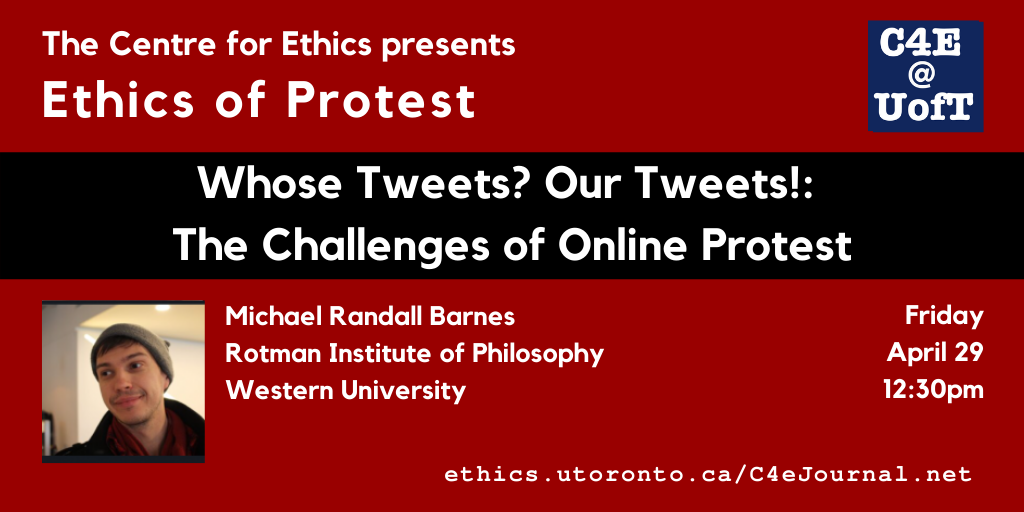 ► To stay informed about other upcoming events at the Centre for Ethics, opportunities, and more, please sign up for our newsletter.
► To stay informed about other upcoming events at the Centre for Ethics, opportunities, and more, please sign up for our newsletter.
The type of street protest typical of mass social movements is, paradigmatically, an in-person affair. This has important consequences for how we understand the type of political speech act protest is. Features like its publicness and its embodiedness play significant roles in giving the demands of protest a distinct type of authority that is inseparable from its speakers—and the plurality of speakers is itself pragmatically noteworthy. The rise of online communication platforms, however, offer new opportunities for social movements to leverage public attention and expand their reach. Across the political spectrum, specifically online protest is forcing real world changes at a relentless pace. But the diverse mechanisms of online speech pull against our normal understanding of protest and its rootedness in identifiable speakers making their voices heard at sometimes significant risks to themselves. We can seriously ask whether online protest even is really protest? This talk will explore how features of online speech—its algorithmic mediation, the anonymity/pseudonymity it permits, its global nature yet beholdenness to American businesses, and more—challenge our understanding of protest and force a re-conceptualization of its central features.
► please register here
This is an online event, available on the Centre for Ethics YouTube Channel, on Friday, April 29. Channel subscribers will receive a notification at the start. (For other events in the series, and to subscribe, visit YouTube.com/c/CentreforEthics.)
Michael Randall Barnes
Rotman Institute of Philosophy
Western University
Fri, Apr 29, 2022
12:30 PM - 01:45 PM
Centre for Ethics, University of Toronto
200 Larkin

